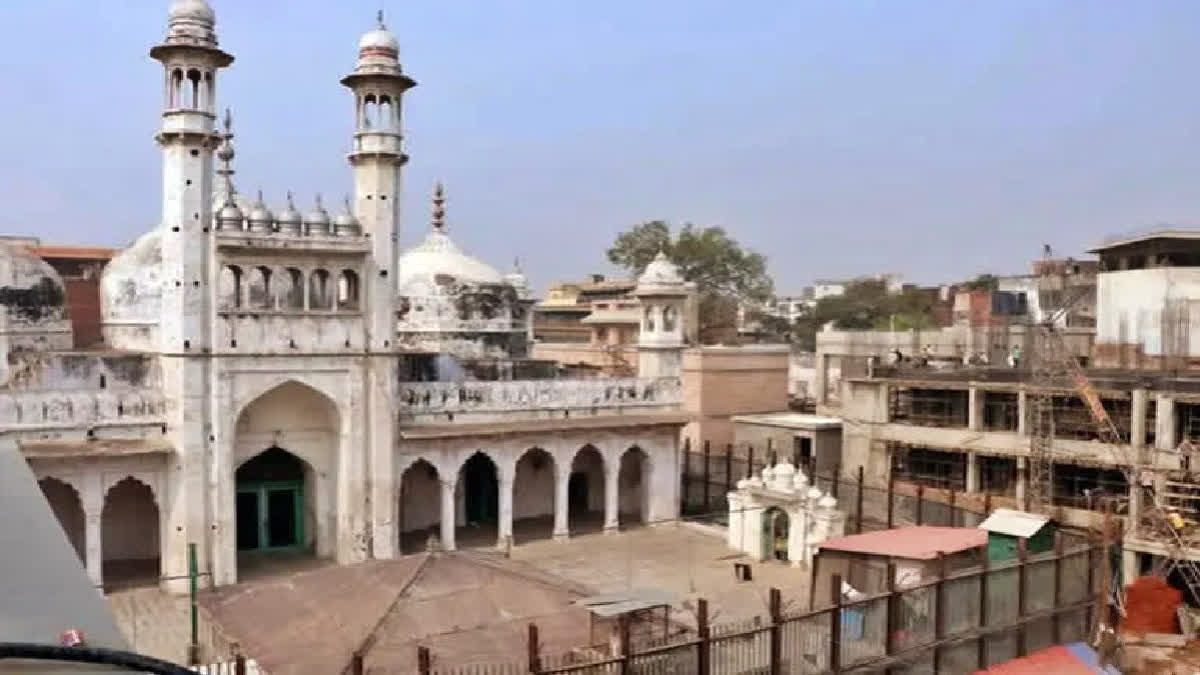New Delhi:The Supreme Court bench led by the Chief Justice of India DY Chandrachud on Monday asked the District collector of Varanasi to convene a meeting with officers on Tuesday to consider the request by the Gyanvapi Masjid Committee seeking to make arrangements for Muslims for their wuzu and washroom in view of the month of Ramzaan.
The bench, also comprising Justice PS Narasimha and Justice JB Pardiwala, said that depending upon the consensus reached in the meeting, the court will pass appropriate orders on Friday, April 21. Senior Advocate Huzefa Ahmedi, appearing for the applicant Committee of Management of the Anjuman Intezamia Masjid, submitted before the court that Muslims would do their wuzu in the fountain area and the nearby washrooms.
"But after last year's order in response to claim of Shivling being there, the entire area has been sealed. The top court had clarified that Muslims' right should not be restricted to perform their religious activities, which includes wuzu. But the same is not being implemented," Advocate Ahmedi.
Solicitor General of India, Tushar Mehta, appearing for the state of Uttar Pradesh, told the court that the entry is from one side which according to one group is the fountain and according to the other, is a Shivlinga. "This can lead to problems. And therefore, we have made some arrangements to provide water for wuzu separately," he said.
Advocate Ahmedi argued that the Muslims would be content even with mobile toilets. SG responded saying that the mobile toilets may affect the sanctity of the place, adding that the officers will assess the situation. The court however recorded Advocate Ahmedi's submission that mobile toilets can also be provided.
The Supreme Court thereafter proceeded to order the District Collector of Varanasi to convene a meeting tomorrow and provide a "congenial working arrangement". The court will put it in their orders if there is consensus, the court said. The matter will be heard again on April 21 this week.
Last year, five Hindu women had moved to the court contending that there is a Shivlinga inside the Gyanvapi mosque and they should be given access to worship it. In response to the plea, a Varanasi court had passed orders to seal the property. The Muslims had then moved to the top court in response to which the court said that they should not be restricted from their religious activities.
The suit was also tranferred by the apex court to Varanasi District court observing that a senior experience judicial officer should deal with the matter. The district court had ruled in favour of Hindus and had rejected the application seeking carbon dating and scientific investigation of the Shivling. Consequently, the Allahabad HC was approached which had asked the ASI to submit if a safe evaluation of Shivlinga's age could be done.
